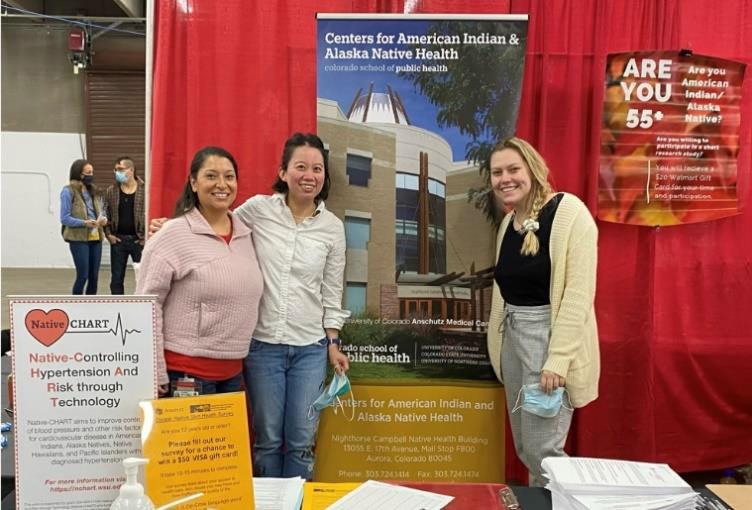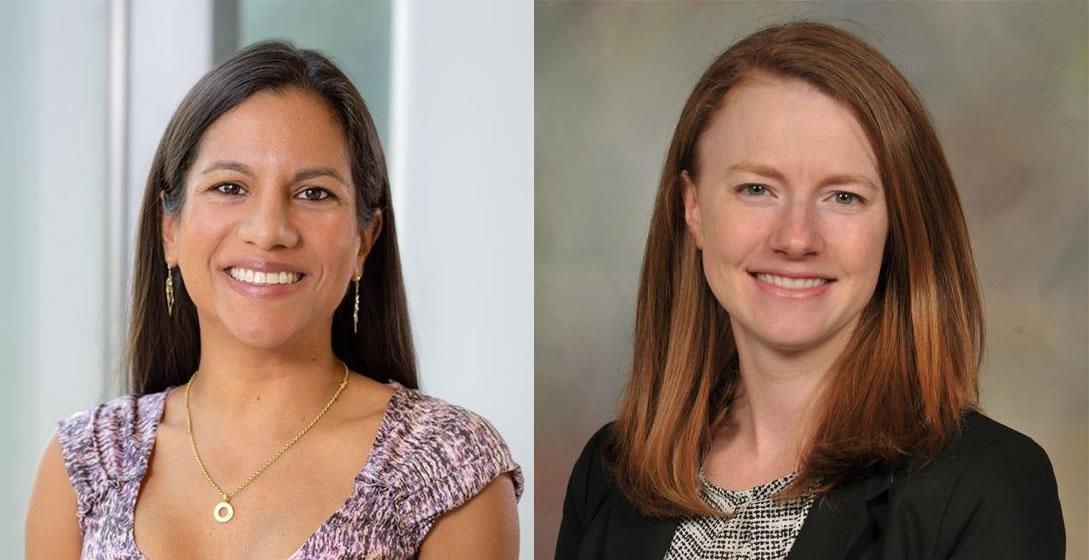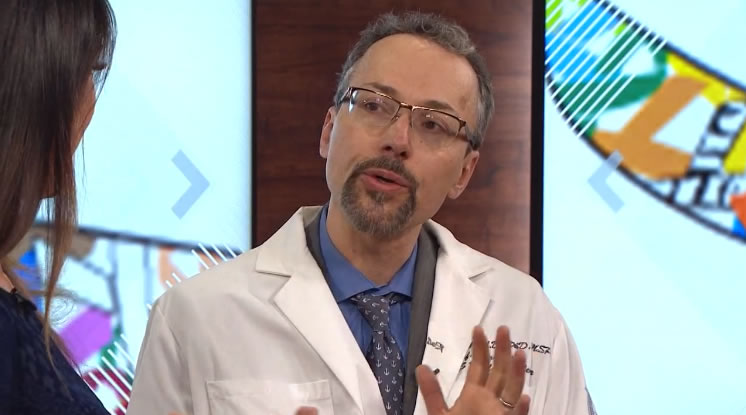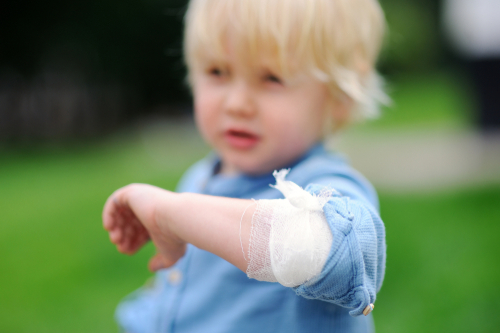Department of Dermatology News
-
.jpg?sfvrsn=d63b86ba_2)
Will Smith's Slap at the Oscars Awakens the World to Alopecia AreataOpens in a new window
Apr 12, 2022Alopecia Areata, an autoimmune disorder, causes either sudden diffuse hair loss or circular bald patches of the scalp. Long before the "slapping incident" at the 2022 Oscars raised public awareness of the disorder, faculty in the Department of Dermatology were researching treatments for AA. Currently, ongoing studies by Drs. Dunnick, Norris, and Wallace are demonstrating the effectiveness of JAK inhibitors as a treatment for this condition.Opens in a new window Full story -
.jpg?sfvrsn=7ccdb9ba_2)
Influencers, Not Dermatologists, Hold Court on TikTok Skin of Color SubjectsOpens in a new window
Mar 28, 2022A new study presented at this year’s annual meeting of the American Academy of Dermatology found that the majority of TikTok content related to dermatology and skin of color originates with social-media influencers and estheticians, not board-certified dermatologists. The study, led by our own Dr. Robert P. Dellavalle, not only raises concerns but also highlights opportunities for dermatologists to share evidence-based information with online communities.Opens in a new window Full story -

Clinic Addresses Skin-Care Needs for Underserved PopulationsOpens in a new window
Feb 18, 2022CU Medicine Dermatology, our department's clinic at the edge of the Anschutz Medical Campus, is meeting the needs of underserved groups in the Denver/Aurora community, including Medicaid patients, patients of color, and transgender individuals preparing for surgery.Opens in a new window Full story -
.jpg?sfvrsn=a0fcb7ba_2)
Oral Tofacitinib Produces Hair Regrowth in Children With Alopecia AreataOpens in a new window
Feb 14, 2022“A success rate of 73% is very good,” said lead author Cory A. Dunnick, professor of dermatology and director of clinical trials. No serious adverse events occurred, and adverse events of any kind were limited, the researchers found.Opens in a new window Full story -

Dr. Kohn Advances Research on Native American HealthOpens in a new window
Feb 4, 2022At the Denver Native American Heritage Pow Wow in November 2021, Dr. Lucinda Kohn administered surveys for her research study on the relationship between American Indian and Native Alaskan access to dermatology care, quality of life, and skin health. For more details, see page 2 of the February 2022 newsletter from the Center for Children's Surgery.Opens in a new window Full story -

Drs. Torres-Zegarra and Gurnee Recognized for AchievementsOpens in a new window
May 31, 2021Two of our faculty members were recognized in the May 2021 newsletter for the Center for Children's Surgery: Carla Torres-Zegarra, MD, for hosting the "Pediatras en Línea" podcast; and Emily Gurnee, MD,for winning a Weston Career Development Award from the Pediatric Dermatology Research Alliance and Society for Pediatric Dermatology. See page 2 of the newsletter for details.Opens in a new window Full story -
.jpg?sfvrsn=9ad8aaba_2)
Bar Soaps May be Better than Body Washes for Contact Dermatitis PatientsOpens in a new window
Sep 11, 2017Chronic contact dermatitis often is tied to hidden allergens found in shampoos, soaps, and body washes, according to Cory Dunnick, MD.Opens in a new window Full story -

How to Avoid the Most Common Sunscreen MistakesOpens in a new window
Jul 27, 2018You might have noticed some comically high-SPF sunscreens lining drugstore shelves. According to Theresa Pacheco of the University of Colorado School of Medicine, “SPF 15 is good. SPF 30 is better.” Anything higher, she says, doesn’t make much of a difference. An SPF 15 sunscreen will block about 93 percent of UVB rays, compared to 97 percent for SPF 30 and 98 percent for SPF 50.Opens in a new window Full story -

Buddy Check9: Skin CancerOpens in a new window
Apr 9, 2018On Buddy Check9 Day, Robert Dellavalle from the University of Colorado School of Medicine and Neil Box talk about skin cancer. Dellavalle: “One of the things that we’re excited about is a camera that can show hidden UV damage.”Opens in a new window Full story -

Defense Grant Awarded to Develop Stem Cell Therapies for EB, Wound CareOpens in a new window
Apr 16, 2018The U.S. Department of Defense awarded $3.8 million to a consortium working to develop stem cell-based therapies for patients with inherited skin diseases such as epidermolysis bullosa (EB) and for wound care. “We are very excited to receive such a strong endorsement from the US Department of Defense,” said Ganna Bilousova, an associate professor of dermatology at the University of Colorado School of Medicine and member of the consortium. “It is extremely difficult to advance any type of novel therapies into the clinic without the benefit of compelling government interest and support.”Opens in a new window Full story